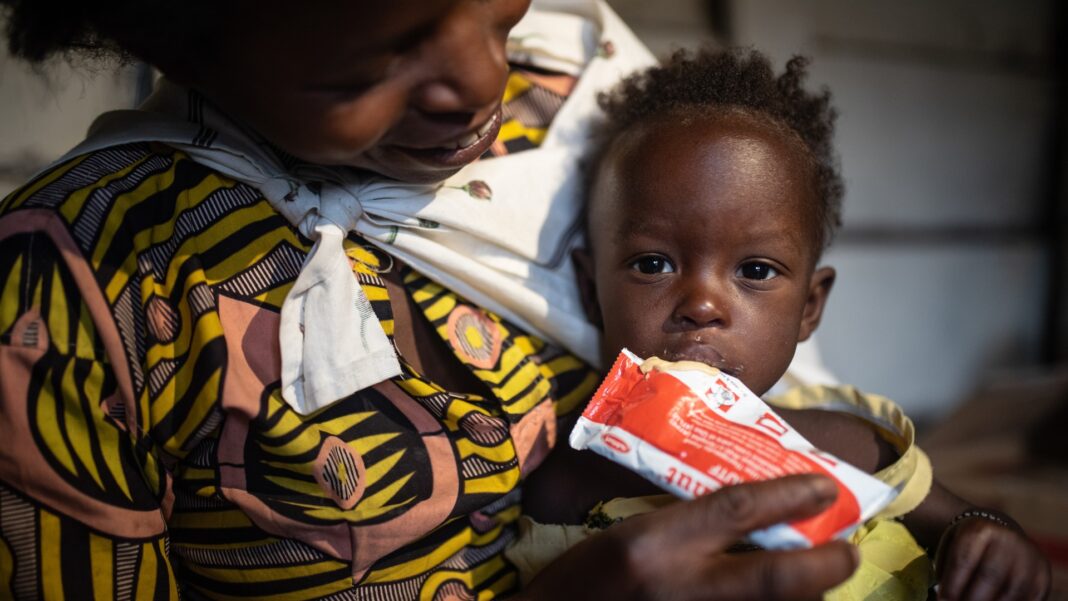Hunger is violence. Many freaks, upheavals and misfortunes of history were by the fashioning of hunger. Hunger is a maximum ruler. It sets in motion inexorable forces of chaos and anarchy.
The French Revolution had the spurring of hunger. In 1788, France was scourged by a deleterious winter resulting in widespread famine. Citizens were seized by hunger. They starved as the famine ratcheted up its grip. The price of bread became unaffordable. Soon, riots broke out in some cities, including Paris, as the country was broke, and by 1789 the revolution conjured by hunger, with the alliance of some concomitant issues, began.
In Africa, food riots have led to the spiralling of violence, chaos and anarchy. In 2018, “the bread revolution” in Sudan upended the country. The consequence of that revolution today is Sudan in the throes of a civil war. The Arab Spring and the Tunisia bread riots were also some of the fashioning of hunger. Why always bread?
We must appreciate the power of hunger to deal delicately with matters of food security. Food security is national security. In policymaking, addressing hunger is pivotal, because “foodology” is at the nucleus of existence. Hunger is a mad man.
It is within this context that the Federal Government’s expeditious declaration of a state of emergency on food security is most judicious. According to the National Bureau of Statistics (NBS), Nigeria’s annual inflation rate rose to 22.79 per cent in June, relative to the May headline inflation rate of 22.41 per cent. Food inflation rose to 25.25 per cent on a year-on-year basis in June 2023, higher than the rate recorded in June 2022, which was 20.60 per cent. Evidently, this is a national emergency.
The Federal Government says all matters pertaining to food and water availability and affordability, as essential livelihood items, will now be within the purview of the National Security Council. It also says it will deploy some savings from the fuel subsidy removal into the agricultural sector, focusing on revamping the sector.
According to Mr Dele Alake, spokesman of the government, the immediate intervention strategies are: the release of fertilisers and grains to farmers and households to mitigate the effects of the subsidy removal; urgent synergy between the Ministry of Agriculture and the Ministry of Water Resources to ensure adequate irrigation of farmlands and to guarantee that food is produced all-year round; creation of a National Commodity Board that will review and continuously assess food prices, as well as maintain a strategic food reserve that will be used as a price stabilisation mechanism for critical grains and other food items; and engage the security architecture to protect farms and farmers, so that farmers can return to the farmlands without fear of attacks.
Mr Alake says through the National Commodity Board, the government will moderate spikes and dips in food prices.
Other measures he says the government is initiating to arrest the current drift are: “Activation of land banks. There are currently 500,000 hectares of already mapped land that will be used to increase availability of arable land for farming which will immediately impact food output; mechanisation and land clearing – the government will also collaborate with mechanisation companies to clear more forests and make them available for farming; river basins – there are currently 11 rivers basins that will ensure planting of crops during the dry season with irrigation schemes that will guarantee continuous farming production all year round, to stem the seasonal glut and scarcity that we usually experience.
We will deploy concessionary capital/funding to the sector especially towards fertiliser, processing, mechanisation, seeds, chemicals, equipment, feed, labour, etc. The concessionary funds will ensure food is always available and affordable, thereby having a direct impact on Nigeria’s Human Capital Index (HCI). This administration is focused on ensuring the HCI numbers, which currently rank as the third lowest in the world, are improved for increased productivity; Transportation and Storage: The cost of transporting agricultural products has been a major challenge (due to permits, toll gates, and other associated costs). When the cost of moving farm produce is significantly impacted – it will immediately be passed to the consumers, which will affect the price of food – the government will explore other means of transportation including rail and water transport, to reduce freight costs and in turn impact the food prices.”
These remedial measures are timely and show that the government is attuned to the prevailing hardship. Addressing hunger is critical to deploying and sustaining other government plans and programmes. Nigerians have to eat.
Food security is national security. No nation can secure itself if its citizens are hungry. Insecurity, itself, is a manifestation of the corollaries of hunger. As such, addressing food security with deliverable targets and a Marshall Plan is a must, and a commendable effort.
A bulk of household cash is spent on food. According to the 2023 Minimum Wage report, the cost of basic food items required for survival by an average Nigerian family rose by 17.5% to N48,130 in January from N40,980 in 2022. So, if food prices are effectively tempered through incentivised agriculture, much of the quotidian stress many Nigerians are going through will be alleviated.
I believe “service plans” – like the food security initiative – are the most effective in addressing the collateral ramifications of policy implementation and achieving a multiplier effect in mass survival.
Another important service plan is the review of the minimum wage, which the government is currently working on. The cost of basic food items required for sustenance by an average Nigerian family is already above the minimum wage mark. So, this is most elemental. Some state governments, like that of Imo, have already begun to initiate a review of their own accord.
It is important that these plans are followed timeously – as the government is already doing.
Nigerians have to eat.
By Fredrick Nwabufo


